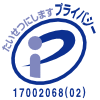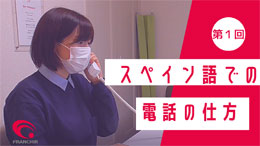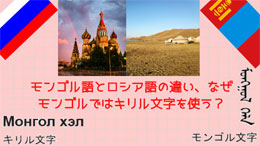日本でビジネスをしようと思ったら、やはり挨拶が肝心。
「おはようございます」「こんにちは」「お疲れ様です」など、ビジネスシーンで使われる
日本語は様々。また、プライベートでは使うけれどビジネスでは使わない言葉もあります。
今回は簡単な挨拶と、その解説、動画を記載してみました。
フランシールではこれから日本で働きたい外国人や、今すでに日本で働いている人たちへのお役立ち情報をブログやYOUTUBEを使って提供していきます。
If you are interested in doing business in Japan, you should definitely learn some Japanese greeting etiquette.
There are variety of Japanese words and expressions used in business situations, such as “Ohayo gozaimasu” (Good morning), “Konnichiwa” (Good afternoon), and “Otsukaresama desu” (Thank you for your hard work).
Some expressions that are commonly used between friends or family should not be used in business settings, which can be a tricky thing to master.
But don’t worry, you are in good hands! This article compiles all the basic Japanese greetings you need to know and explains how to use them. We’ve also made Youtube videos that can be used to practice along!
Franchir provides useful information for foreigners looking to work in Japan or those already working in Japan through our website and our Youtube channel.
① 「おはようございます。」
会社に来たときは、「おはようございます」とあいさつをします。他の社員がきたときも「おはようございます。」と返事をします。家族の間で使う「おはよう」は同僚の間では使えますが、上司に言うと失礼になるので注意しましょう。
“Good morning.”
Say “ohayo gozaimasu” to your colleagues when you get to your office in the morning. When other employees come in, you should greet them with “ohayo gozaimasu.” “Ohayo” is the casual version, used among family members. It can be use among colleagues too, but you should not use it to greet your boss because it is too familiar.
② 「こんにちは。」
ビジネスのシーンでは、よく会うお客様や、ビジネスパートナーに会ったときに使います。よく聞く挨拶ですが、日本人は家族間ではほとんど使いません。
“Good afternoon.”
This is the typical greeting used often, such as when you meet regular clients or business partner in a business setting. People usually do not use it between family members.
③ 「ありがとうございます。」
英語のThank you です。だれにでも使えますが、「ありがとう」だけでは失礼にあたる場合があります。ビジネスのシーンでは、きちんと「ありがとうございます」と最後まで言いましょう。本当に感謝を伝えたいときには「どうもありがとうございます。」と「どうも」を付け加えると気持ちが伝わります。
“Thank you.”
“Arigatou gozaimasu” can be use by and to everyone. “Arigato” is a shorter version and may be rude in certain occasions, so be careful before using it. In business situations, you should always say “arigatou gozaimasu” at the end of a meeting. If you are very thankful, add “doumo” before “arigatou gozaimasu”. This means “thank you very much” and is more polite.
④ 「お疲れ様です。」
外出してきて帰ってきた同僚や上司に言います。
「ご苦労様です。」という言い方は上司に対して使うと失礼になるので間違えないようにしましょう。
“Otsukare sama desu.”
“Otsukare sama desu” is used in many contexts, but roughly means “thank you for your hard work.” For example, use “otsukare sama desu” when a colleague or a superior has gone out to work and came back to the office, to let them know that you acknowledge their hard work. Be careful of the expression “Gokuro sama desu.” It has a similar meaning, but it is only used by a superior to someone under their authority, such as a boss to their worker. The other way around is rude so be aware when you want to use it.
⑤ 「初めまして。」
初めて会う人に使う挨拶です。誰にでもつかえます。
“Nice to meet you.”
“Hajimemashite” is a standard greeting used when you meet someone for the first time.
⑥ 「株式会社フランシールのマドレーヌと申します。」
ビジネスのシーンでお客様に会うときには「私の名前は○○です。」というより会社名と謙譲語を使って言うのが普通です。
“(Your company) no (your name) to moushimasu.”
Japanese people use this expression when introducing themselves to a client or a business partner, instead of the usual “watashi no namae ha (name) desu” (“my name is (name)”). This is because it is in humble language, which is preferred in a business situation.
⑦ 「よろしくお願いします。」
「こちらこそよろしくお願いします。」
どんなシーンでもよく聞く言葉です。初めて会うときに言われたら同様に返します。
日本人はミーティングの最後にこの言葉で会議を終えることが多いのですが、この挨拶が交渉事のYESなのかNOなのかわからないから日本人の返事があいまいだという人が多いようです。
“Yoroshiku onegaishimasu.” or “kochira koso yoroshiku onegaishimasu.”
This expression does not have a direct translation, but it roughly means “I look forward to working with you in the future.” This is used often, in a variety of situations. If someone tells you this greeting, you should reply the same way.
Japanese people often end a meeting with this expression. However, in a setting where business negotiations are being carried, this greeting does not specifically state if business will carry on or not. The lack of a straightforward “yes” or “no” is one of the reasons why people say Japanese is an ambiguous language.
⑧ 「すみません」
遅刻しそうになったり、簡単なミスをしたりしたときに使う謝罪の言葉ですが、ただ場所を開けてほしいときや、道を聞くとき、プレゼントをもらった時などにも使います。これをすぐに「I am sorry」と訳してしまうと奇妙に聞こえるかもしれません。
“Sorry.”
This is an apology to use when you have made a small mistake, such as when you know you will be late. You can also use it when you need help, like when you have trouble opening something, or when you need to ask for directions. Japanese people also use this expression when they receive a gift. It may sound strange as it is usually directly translated as “I am sorry”, but the meaning differs depending on the context, and this specific case, it means “thank you.”
⑨ 「申し訳ございません」
「本当に申し訳ございません。」
こちらは深く謝罪するときに使う言葉です。ビジネスシーンでは、お客様のクレームなどに対応するときに使います。「ごめんなさい」「ごめん」はプライベートではつかえますがビジネスシーンでは使わないので注意しましょう。
“I am sorry”, “I am very sorry.”
This form of apology is used for serious mistakes. In a business situation, you should use it when you receive a complaint from a client, for example. “Gomennasai” or “gomen” is another way to apologize, but it should be used only in private and not in business settings.
⑩ 「結構です。」
「よろしくお願いします。」と同様にあいまいな回答です。「お茶はいかがですか?」「結構です。」と言われたらお茶はいらないという意味になりますが、「ご注文はその後いかがでしょうか」と聞いたときに「結構です。」と言われたら、発注してくれるのかしてくれないのか日本人でもわからないときがあります。どうしてもわからないときは確認したほうがいいでしょう。
“No thank you”, “It’s ok.”
This is another ambiguous phrase, just like “yoroshiku onegaishimasu”. For example, if someone asks you “would you like a cup of tea?”, you can reply with “kekko desu” to politely decline. However, the meaning is not always this straightforward. For example, if you ask a client if they will order again later, they might reply with “kekko desu” and you will not know if it means “no, I will not,” or “yes, I will.” In such cases, it is best to confirm with the person you are talking to.




 お問い合わせ
お問い合わせ
















コメントを残す